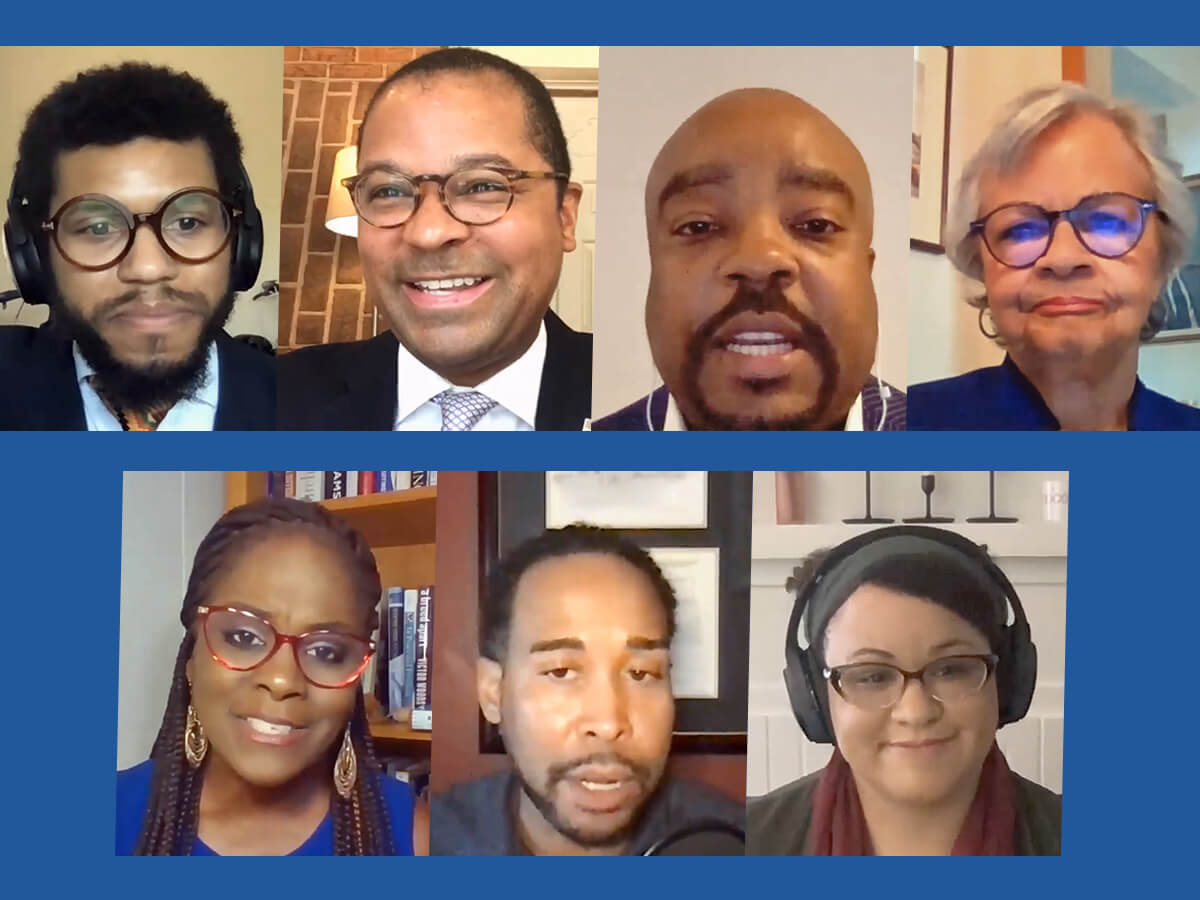(WASHINGTON, D.C. – July 13, 2020) – Three days before a scheduled vote on a rules to establish a 3-digit suicide prevention hotline, FCC Commissioner Geoffrey Starks hosted on online discussion about the roles that communications technology and media can play to address Black mental healthcare needs. “I’m set to take a vote on Thursday on the 988 national suicide prevention hotline,” said Starks. “Hearing from so many passionate advocates today, I really do think there is a particular need for National Suicide Mental Health Crisis Hotline that could save lives.”
“I am also committed to connecting all Americans to affordable and reliable broadband which, if realized, will present opportunities for
our communities to connect to lifesaving telehealth services, including mental health services,” Commissioner Starks said, noting disparities in access. “Telehealth services surged during the coronavirus pandemic, and yet we have to deal with the harsh reality that Black communities disproportionately lack access to the telecommunications services that provide access to critical, life-saving care. This is why I have called for an expansion of the FCC’s Lifeline program, which is the only federal subsidy that offers voice and broadband services at a subsidized rate to low-income Americans, to meet the critical needs of this moment in history.”
Monday’s opening remarks were made by Rep. Bonnie Watson Coleman (D. N.J.), a member of the U.S. House Committee on Appropriations who also introduced the Pursuing Equity in Mental Health Act of 2019 last December. Stressing the urgency to act in the era of COVID-19, she said, “Access to mental healthcare, the [healthcare] disparities in the communities of color and the LGBTQ community, are issues that are very prominent in our appropriation bills that we are going to be taking up today in committee.”
During the panel discussion, NYU McSilver Institute Executive Director Dr. Michael A. Lindsey described research that he led which was published in the journal Pediatrics. It pointed to a 73 percent increase in self-reported suicide attempts by Black high school students between 1991 and 2017. “There is a ring the alarm moment as it relates to Black youth and suicide behaviors,” he said.
Dr. Lindsey echoed the need to bridge the gap between life-saving resources, such as broadband-enabled telehealth, and the people who need them. “The work that Commissioner Geoffrey Starks is doing to bridge the digital divide is critically important, but if we develop those technologies will Black people have access to them?” He noted that schools are an important access point for mental health services by youth, but too often, schools attended primarily by youth of color don’t have enough providers. “We need more mental health providers proportionate to the number of kids in schools,” he added.
Moderated by A. Prince Albert III, a Technology and Telecommunications Fellow at The Leadership Conference on Civil and Human Rights, the panel discussion also included insights by Noopur Agarwal, Vice President of Social Impact for ViacomCBS’ Entertainment and Youth Group; Dr. Kia Darling Hammond, Founder and CEO of Wise Chipmunk; David Johns, Executive Director of the National Black Justice Coalition; and Dr. Nicol Turner-Lee, a Senior Fellow in Governance Studies and Director of Center of Technology Innovation at the Brookings Institution.
Commissioner Starks’ full remarks are posted on the FCC website.
Learn more about what NYU McSilver is doing relating to mental health, telehealth and COVID-19.
